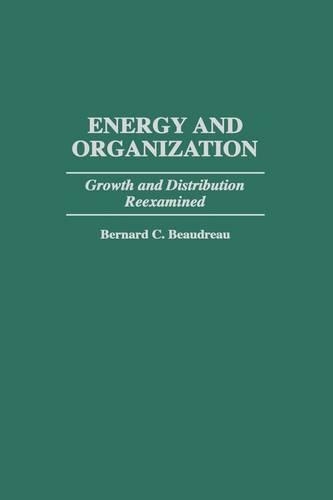
Energy and Organization: Growth and Distribution Reexamined
(Hardback)
Publishing Details
Energy and Organization: Growth and Distribution Reexamined
By (Author) Bernard C. Beaudreau
Bloomsbury Publishing PLC
Praeger Publishers Inc
28th February 1998
United States
Classifications
Tertiary Education
Non Fiction
Industry and industrial studies
Macroeconomics
338.06
Physical Properties
Hardback
208
Description
In the aftermath of the stock market crash, Irving Fisher pointed to the electrification of the U.S. industry as one of the underlying causes of the stock market boom. Earlier, in 1927, Brookings Institution economists had lamented the scant attention energy had received from economists. Today, some 60 years later, power remains the forgotten factor input. In this book, the author incorporates energy into the corpus of economic analysis. Unlike previous attempts, which were mostly theoretical, this work generates testable predictions. The result is a model of production based on the two universal factor inputsbroadly defined energy and broadly defined organization. Once the model of production is developed, the book then tests an empirical model with data from U.S., German, and Japanese manufacturing. The results are used to reexamine the role of energy in productivity slowdown. When the empirically and theoretically correct model of production is used, the Solow residual disappears: growth in manufacturing value added is fully accounted for by growth in energy, capital, and labor.
Reviews
His theory is not generally accepted and, indeed, is widely ignored in the economic literature. If he is right, however, it could have profound implications for business management.-Books and Articles in Brief
"His theory is not generally accepted and, indeed, is widely ignored in the economic literature. If he is right, however, it could have profound implications for business management."-Books and Articles in Brief
Author Bio
BERNARD C. BEAUDREAU is Associate Professor of Economics at Universit Laval in Quebec City. He is the author of Mass Production, The Stock Market Crash, and the Great Depression: The Macroeconomics of Electrification (Greenwood, 1996).
